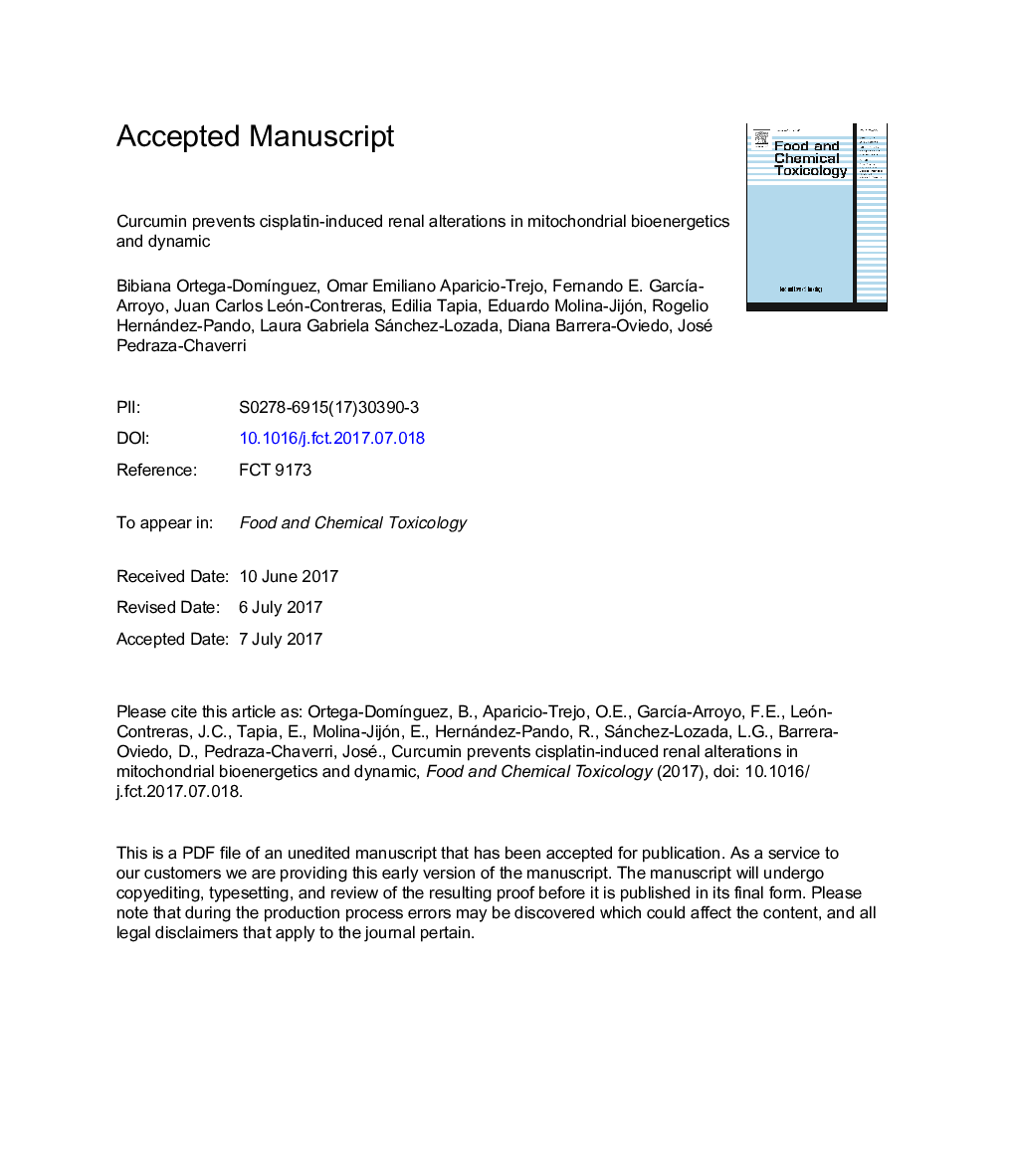| Article ID | Journal | Published Year | Pages | File Type |
|---|---|---|---|---|
| 5560088 | Food and Chemical Toxicology | 2017 | 46 Pages |
Abstract
Cisplatin is widely used as chemotherapeutic agent for treatment of diverse types of cancer, however, acute kidney injury (AKI) is an important side effect of this treatment. Diverse mechanisms have been involved in cisplatin-induced AKI, such as oxidative stress, apoptosis and mitochondrial damage. On the other hand, curcumin is a polyphenol extracted from the rhizome of Curcuma longa L. Previous studies have shown that curcumin protects against the cisplatin-induced AKI; however, it is unknown whether curcumin can reduce alterations in mitochondrial bioenergetics and dynamic in this model. It was found that curcumin prevents cisplatin-induced: (a) AKI and (b) alterations in the following mitochondrial parameters: bioenergetics, ultrastructure, hydrogen peroxide production and dynamic. In fact, curcumin prevented the increase of mitochondrial fission 1 protein (FIS1), the decrease of optic atrophy 1 protein (OPA1) and the decrease of NAD+-dependent deacetylase sirtuin-3 (SIRT3), a mitochondrial dynamic regulator as well as the increase in the mitophagy associated proteins parkin and phosphatase and tensin homologue (PTEN)-induced putative kinase protein 1 (PINK1). In conclusion, the protective effect of curcumin in cisplatin-induced AKI was associated with the prevention of the alterations in mitochondrial bioenergetics, ultrastructure, redox balance, dynamic, and SIRT3 levels.
Related Topics
Life Sciences
Agricultural and Biological Sciences
Food Science
Authors
Bibiana Ortega-DomÃnguez, Omar Emiliano Aparicio-Trejo, Fernando E. GarcÃa-Arroyo, Juan Carlos León-Contreras, Edilia Tapia, Eduardo Molina-Jijón, Rogelio Hernández-Pando, Laura Gabriela Sánchez-Lozada, Diana Barrera-Oviedo, José Pedraza-Chaverri,
